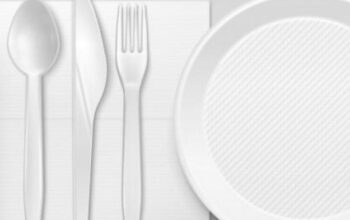Like land, the ocean is also a source of many foods that are incredibly beneficial for your health. Even if you are a vegetarian, you can get the health benefits of nutrient-rich seaweeds such as sea moss, also known as Irish moss. This natural supplement has gained significant attention, especially in the wellness community.
Rich in essential nutrients like iodine, potassium, calcium, and vitamins, sea moss has been touted as a natural supplement for boosting overall health. However, the question arises for pregnant women: Is sea moss safe to consume during pregnancy? Let’s explore the potential benefits, risks, and best practices for taking sea moss while expecting.
What Is Sea Moss?
Sea moss is a type of red algae commonly found along the Atlantic coasts of North America, Europe, and the Caribbean. It has been traditionally used in various cultures as a nutrient-rich food source and natural remedy. Available in various forms, including gels, powders, and capsules like Herbal Vineyards Sea Moss Capsule, it has become increasingly popular for its convenience and health benefits.
Sea moss is particularly valued for its high mineral content, which supports various bodily functions, including thyroid health, immune function, and digestion.
Nutritional Benefits of Sea Moss for Pregnant Individuals
Maintaining proper nutrition is vital for maternal and fetal health during pregnancy. Sea moss may offer some benefits due to its rich nutrient profile:
Iodine for Thyroid Health
Pregnancy increases the demand for iodine, which is crucial for maintaining healthy thyroid function. The thyroid gland plays a significant role in fetal brain development. Sea moss is a natural source of iodine, but excessive intake should be avoided to prevent thyroid imbalances.
Calcium for Bone Health
Calcium is essential for the development of the baby’s bones and teeth, as well as for maintaining the mother’s bone density. Sea moss contains a natural form of calcium, making it a potential supplement option.
Iron for Preventing Anemia
Pregnant individuals are at a higher risk of iron deficiency anemia. Sea moss contains small amounts of iron, which can help support healthy blood production.
Immune System Support
Sea moss is rich in antioxidants and nutrients that can help strengthen the immune system, a crucial benefit during pregnancy when the immune system undergoes significant changes.
Potential Risks of Taking Sea Moss During Pregnancy
While sea moss offers several benefits, it’s important to approach its consumption cautiously, especially during pregnancy.
Excess Iodine Intake
While iodine is beneficial, consuming too much can lead to thyroid dysfunction. Pregnant individuals should monitor their iodine intake and consult with a healthcare provider before using sea moss supplements.
Contamination Concerns
Sea moss harvested from polluted waters may contain heavy metals or toxins. To minimize risk, it is essential to choose high-quality, lab-tested products, such as Organics Nature Sea Moss Capsules.
Allergic Reactions
Some individuals may be allergic to seaweed or algae products. If you’ve never consumed sea moss before, it’s advisable to start with a small amount and monitor for adverse reactions.
Digestive Issues
While sea moss supports gut health, excessive intake can cause digestive discomfort, including bloating or diarrhea, especially for those with sensitive stomachs.
Best Practices for Taking Sea Moss During Pregnancy
If you’re considering adding sea moss to your pregnancy diet, here are some guidelines to follow:
Consult Your Doctor
Always speak with your healthcare provider before introducing new supplements during pregnancy. They can help determine whether sea moss is appropriate for your specific health needs.
Choose Quality Products
Opt for trusted, high-quality sea moss supplements like Herbal Vineyards Sea Moss Capsule or Organics Nature Sea Moss Capsules, which are free from contaminants and additives.
Stick to Recommended Dosages
Follow the dosage instructions on the product label to avoid overconsumption of iodine or other nutrients.
Combine with a Balanced Diet
Sea moss should complement, not replace, a well-rounded diet rich in fruits, vegetables, lean proteins, and whole grains.
Monitor Your Body’s Response
Pay attention to how your body reacts to sea moss. If you experience any adverse effects, discontinue use and consult your doctor.
Alternative Ways to Reap the Benefits of Sea Moss
If you’re hesitant about taking sea moss capsules during pregnancy, consider alternative methods of incorporating its benefits into your diet:
Sea Moss Gel
Sea moss gel can be added to smoothies, soups, or teas for an easy way to consume it in small, controlled amounts.
Cooked Sea Moss
Incorporating cooked sea moss into meals ensures its nutrients are more easily absorbed and reduces the risk of contamination.
Prenatal Multivitamins
Many of the nutrients found in sea moss are also present in prenatal multivitamins specifically formulated for pregnancy.
Conclusion
Sea moss can be a valuable addition to a pregnancy diet when consumed responsibly and under medical supervision. Products like Herbal Vineyards Sea Moss Capsule and Organics Nature Sea Moss Capsules offer a convenient way to enjoy the plant’s benefits, but caution should always be exercised to avoid potential risks.
The key is moderation and ensuring that the sea moss you choose is of high quality and free from contaminants. Always prioritize guidance from your healthcare provider to ensure a safe and healthy pregnancy journey. By doing so, you can make informed decisions about incorporating sea moss into your diet for both your benefit and that of your growing baby.




